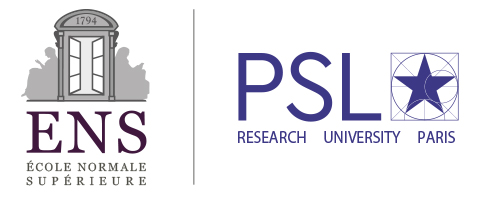Welcome to the Cognitive Science / Artificial Intelligence Seminar!
Goal
Inspired by the creation of new algorithms, increased computing power and the development of deep learning techniques, Artificial Intelligence has developed ever more powerful technical systems, including robots, conversational agents and brain-computer interfaces. At the same time, inspired by those same advances in Machine Learning and AI, the field of Cognitive Science has made leaps and bounds in understanding and modeling human behavior, including human motion, human language, and the human brain. It is too rare today it that the fields of AI and CogSci join in a dialogue to together develop better methodologies and produce better results, both in understanding human behavior, and in building systems that interact with humans. Example of potential synergies:
- How can we use AI systems to better understand Human behavior through automatic and reliable measurements?
- Can we take inspiration from Children and construct universal artificial learner of language, physics, morale?
- What are the next steps to solve for Artificial Intelligence systems?
This seminar aims to open that dialogue between the fields of Cognitive Science and Artificial Intelligence. Speakers may come from one field or the other, but all will use this opportunity to reflect on how a pairing between the two fields can be stronger than the sum of the parts. We hope you will join us in building a common language, and a common understanding of the grand societal challenges we face today, and that together we can conquer.
Next seminars
April 13, 2021, 16:00-17:00 (Paris Time), room https://global.gotomeeting.com/join/784702589.
Kelsey Allen (MIT, Computational Cognitive Science group)
Title: Towards a recipe for physical reasoning in humans and machines
Abstract: The world is structured in countless ways. When cognitive and machine models respect these structures, by factorizing their modules and parameters, they can achieve remarkable accuracy and generalization. In this talk, I will discuss our work investigating the factorizations of objects, relations, and physics in both humans and machines. Focusing on problems in physical reasoning including construction and tool use, I will show how to harness object and relational structure in the form of graph networks and probabilistic programs to improve machine generalization and explain how people can rapidly acquire new tool-using strategies, like the notion of a catapult, from just a handful of experiences. By taking better advantage of problem structure, and combining it with general-purpose methods for statistical learning, we can develop more robust and data-efficient machine agents, and better explain how humans learn so much from so little.
Scientific Committee
Supported by
Original theme for this website is from Gabriel Peyré and the DHAI seminar. It can be found here.

